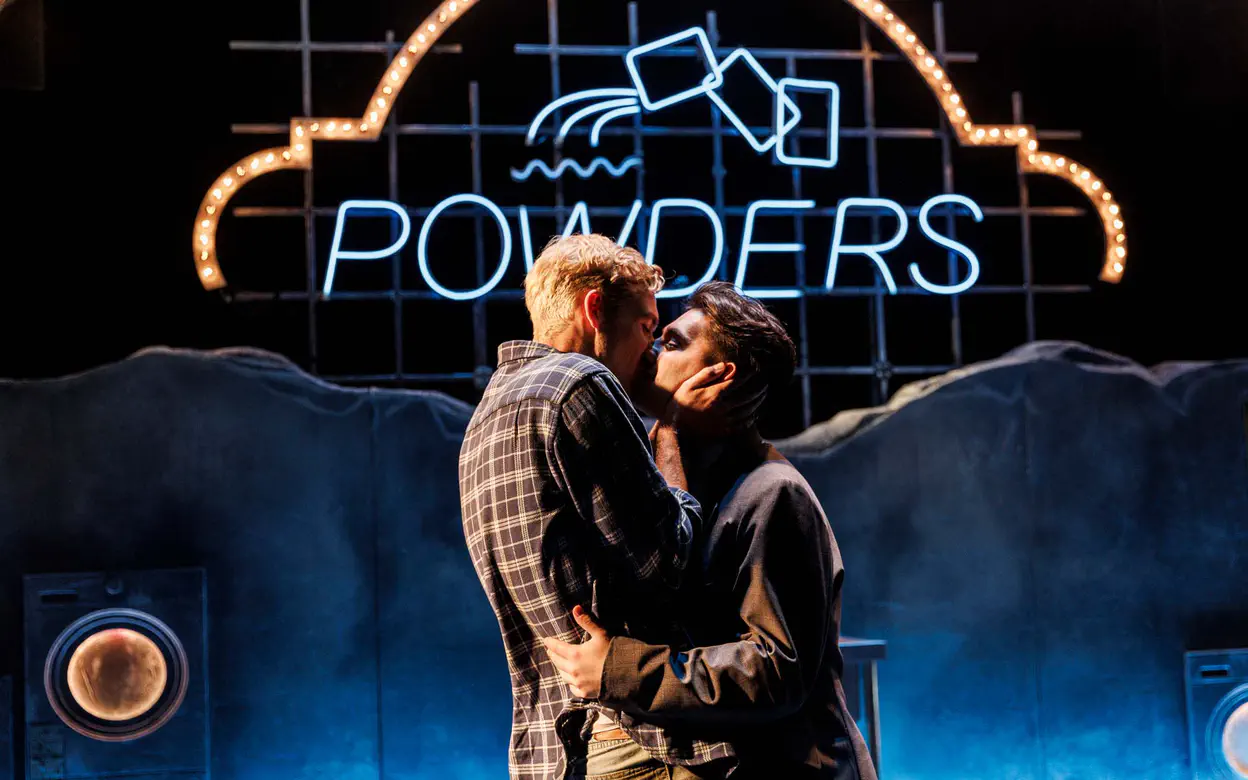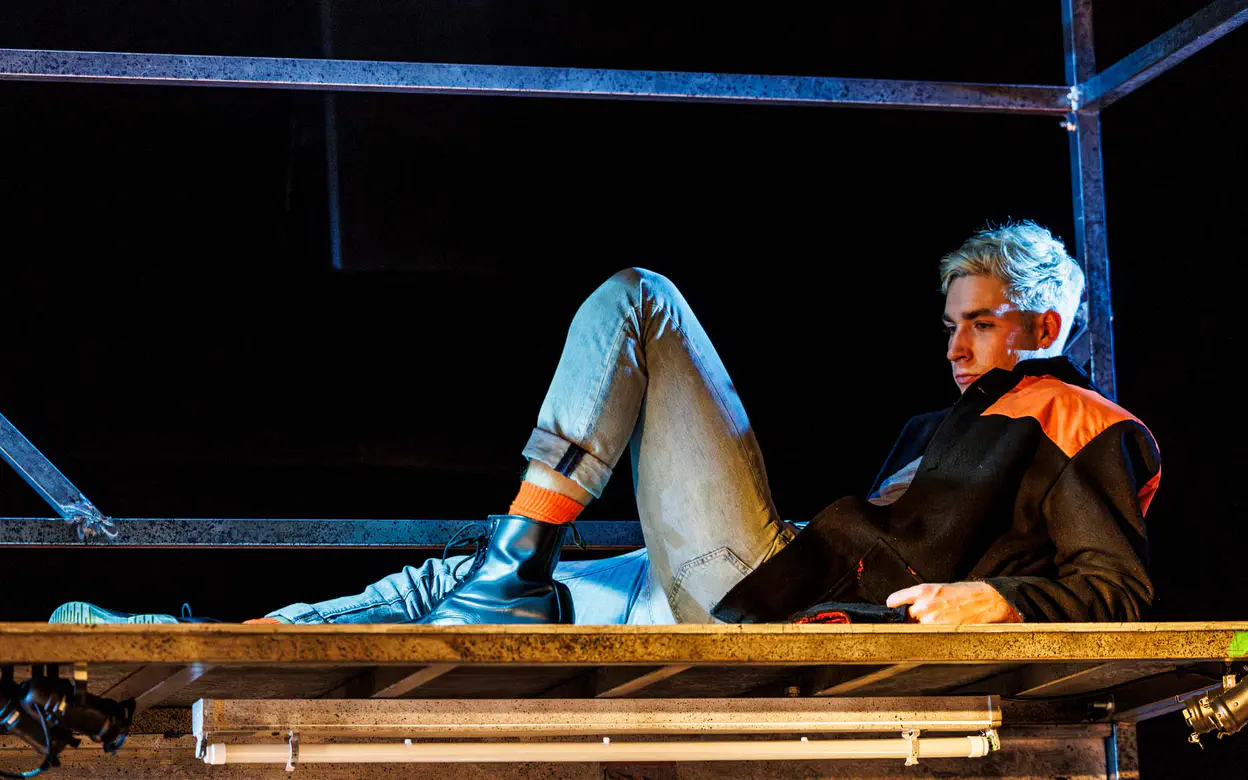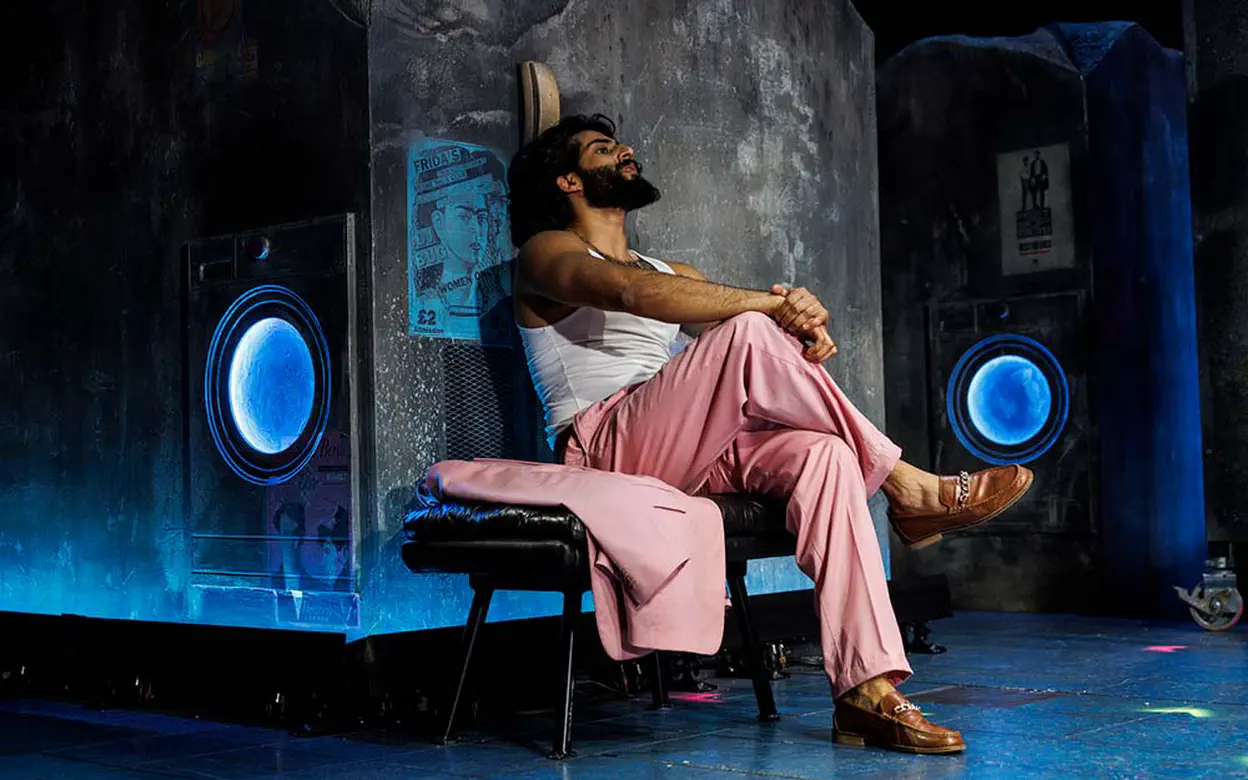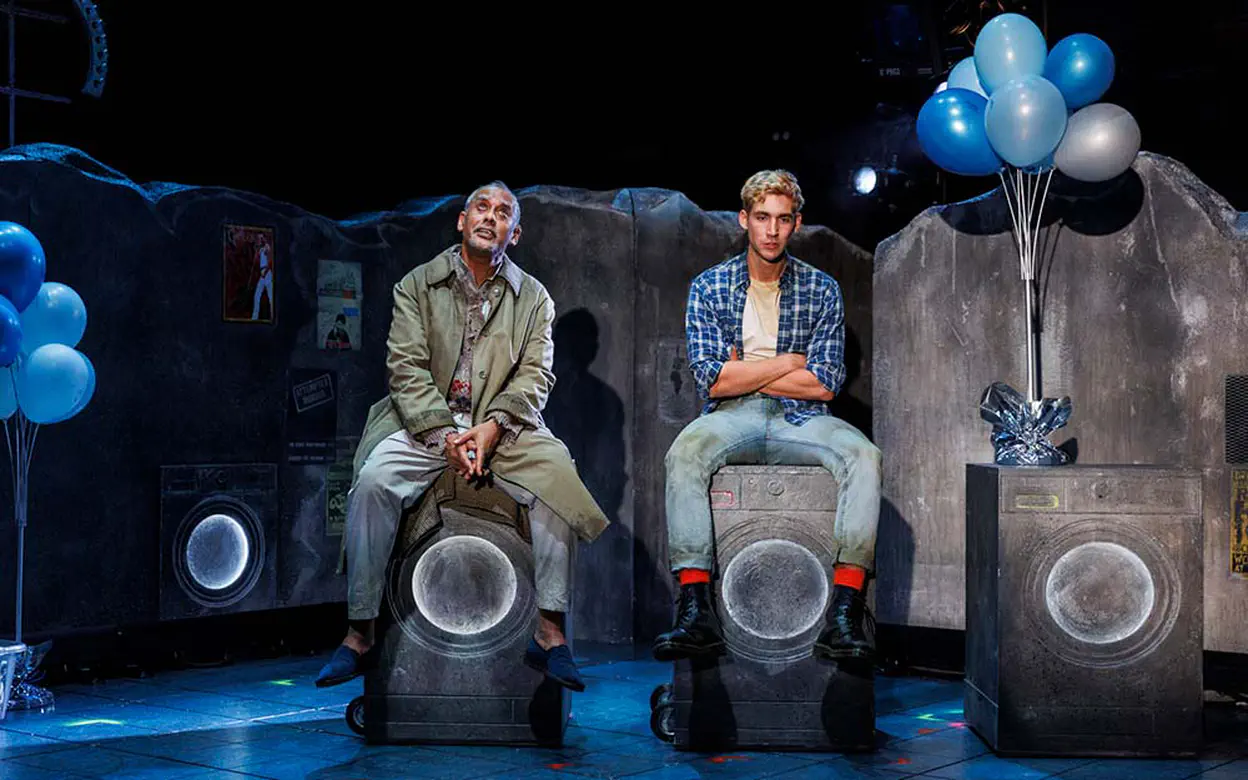My Beautiful Laundrette
Liverpool Playhouse

Adapted from the 1985 film of the same name, My Beautiful Laundrette is a sophisticated, heartfelt and painful reminder that the world is still full of inequality.
The show is set around Omar (Lucca Chadwick-Patel), a young British Pakistani who is struggling to find work during the height of Thatcher’s Britain. In a bid to give Omar more than just a life on “The Dole”, his Papa (Gordon Warnecke) decides Omar will work for his Uncle, and then go to college.
Omar’s Uncle Nasser (Kammy Darweish) is the embodiment of Thatcherite values, and with the help of his right hand man / hired muscle Salim (Hareet Deol), Nasser has built quite a business empire, though not all of them are booming. Nasser decides to give Omar one of his problem businesses to run - a laundrette. Omar jumps as the opportunity despite Nasser’s daughter Tania (Sharan Phull) warning that he is being set up to fail.
But Omar has big plans, and with the help of old schoolfriend Johnny (Sam Mitchell) Omar may just realise those plans and find love in the process. There’s just a few things that are standing in Omar’s way; Salim and his aspirations, an arranged marriage to his cousin Tania, his sexual attraction to Johnny and all that being gay in the 80’s entails, and Johnny’s continued friendship with Ghengis (Paddy Daly) and Moose (Emma Bown who also plays Rachel, Nasser’s love interest) whose fascist ideology and anti-immigration stance leaves Johnny conflicted.

This is a hard-hitting play that retains its 80’s roots with original music composed by the Pet Shop Boys’ Neil Tennant and Chris Lowe, which sit alongside some classic 80’s songs by artists such as Queen. Coupled with the sets and costumes designed by Grace Smart which brought a neon retro-futurism to the stage, you can’t help but be transported back to the days of Top of the Pops and power suits.
The cast within this production are very strong, and there are some outstanding performances.
Hareet Deol as Salim is truly fantastic. He delivered a character that was thoroughly unlikeable within 5 minutes of stage time, and stole every scene he was in. The juxtaposition of Salim’s bright pink suit with that of Omar’s drab, oversized suit was a clever way of showing their differing levels of both confidence and wealth. Deol seemed to lean into the confidence of the character perfectly, without moving into a comedic delivery.

Sam Mitchell as Johnny had the difficult task of playing a character made famous by Daniel Day-Lewis in the film, whilst Lucca Chadwick-Patel as Omar had to make the character his own whilst the original Omar from the film, Gordon Warnecke, was on stage as Papa. Both Mitchell and Chadwick-Patel were convincing in their portrayals of the individual characters, and as a couple. The final scenes between them were particularly powerful, but, the development of their relationship felt a little rushed. There didn’t seem to be the jeopardy of being caught by Omar’s family which we feel should have been present.
Sharan Phull was also fantastic in the role of Tania. Her character is a very vocal feminist who wants to do more than marry her cousin and be a housewife. There are an abundance of cliches that Phull could have used, but she avoided them all and instead delivered a vulnerability which was totally compelling.
Unfortunately, not all of the performances were exceptional. Gordon Warnecke played the original Omar and has played the role of Papa in previous productions, yet his delivery was incredibly wooden as if he was reading lines in a rehearsal room rather than performing. This meant some of the impact the character of Papa should have had, particularly with his advice to Tania about standing up to the family, was delivered without any heart and was lacklustre.

Another aspect that didn’t always work for us within the play was the pacing. The importance of certain scenes wasn’t given enough time for the audience to process what they were watching. Some of the scene changes also felt slightly chaotic which had a danger of overshadowing the start of each scene.
The fight scenes throughout the play were fantastic and didn’t suffer from any pacing issues. Instead, the fight scenes were visceral, with a natural level of intimidation and anger from the different characters. Bret Yount made sure the audience experienced the fighting with as many senses as possible.
One element of the play that we really enjoyed was the differing accents of Nasser and Papa versus Salim. Early in the play the societal differences of the brothers to that of Salim was described, with Nasser saying Salim was a poorer person from a neighbouring village. This difference was then highlighted throughout the production with Salim having a much more pronounced accent as he hadn’t had the influence of the British in India in the same way. A beautifully simple, yet highly effective, representation of the Caste System.
This is generally one of the biggest strengths of the play; handling complex topics in a sensitive and thought-provoking way. We doubt anyone left the Playhouse without feeling moved. With so many of the themes still resonating today, My Beautiful Laundrette is just as important now as it was in the 80’s.
The show is on at the Liverpool Playhouse until 30 March 2024, before going to the Blackpool Grand. Full details of the production and tour can be found on the My Beautiful Laundrette website. Tickets for the Liverpool Playhouse can be booked on their website and range from £11 to £36. The show runs for 2 hours (1 hour in each act) with a 20 minute interval.
Our tickets to this production were kindly gifted by The Liverpool Everyman & Playhouse in exchange for an honest review.
Cover image by Ellie Kurttz.
Originally posted: